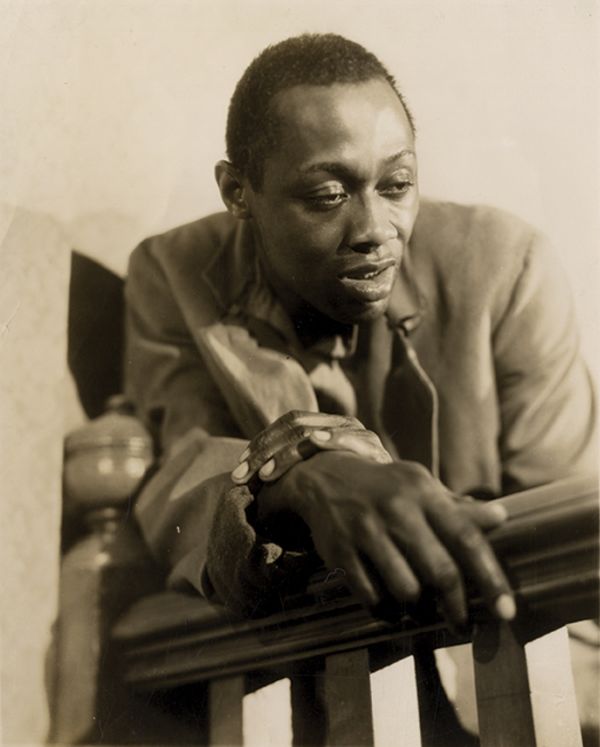
FIRST BLACK ACTOR TO BECOME A MILLIONAIRE
Stepin Fetchit, an American vaudevillian and comedian is considered to be the first black actor to have a successful film career that made him a millionaire.
Vintage original 10 x 8” (25 x 20 cm.) photo, USA. , VERY GOOD+
The above portrait is of Stepin Fetchit (1936) The Bowery Princess
Lincoln Theodore Monroe Andrew Perry (May 30, 1902 – November 19, 1985) adopted Septin Fetchit when he won money betting on a racehorse named “Step and Fetch It”, and his vaudeville partner and he decided to adopt the names “Step” and “Fetchit” for their act. When Perry became a solo act, he combined the two names, which later became his professional name.
Background
His mother wanted him to become a dentist, a quack dentist adopted him, and at the age of 12 he ran away to join a carnival. By 20 he was earning his living as a singer, tap dancer, comic character actor and the manager of a traveling carnival show.
Career On The Move
Perry played comic-relief roles in a number of films, all based on his character known as the “Laziest Man in the World”. In his personal life, he was highly literate and had a concurrent career writing for The Chicago Defender.
He signed a five-year studio contract following his performance in the film, In Old Kentucky (1927). The film’s plot included a romantic connection between Perry and actress Carolynne Snowden, a subplot that was a rarity for a black actor appearing in a white film during this era. Perry also starred in Hearts in Dixie (1929), one of the first studio productions to boast a predominantly black cast.
Stepin Fetchit Portrait (1929) The Big Time
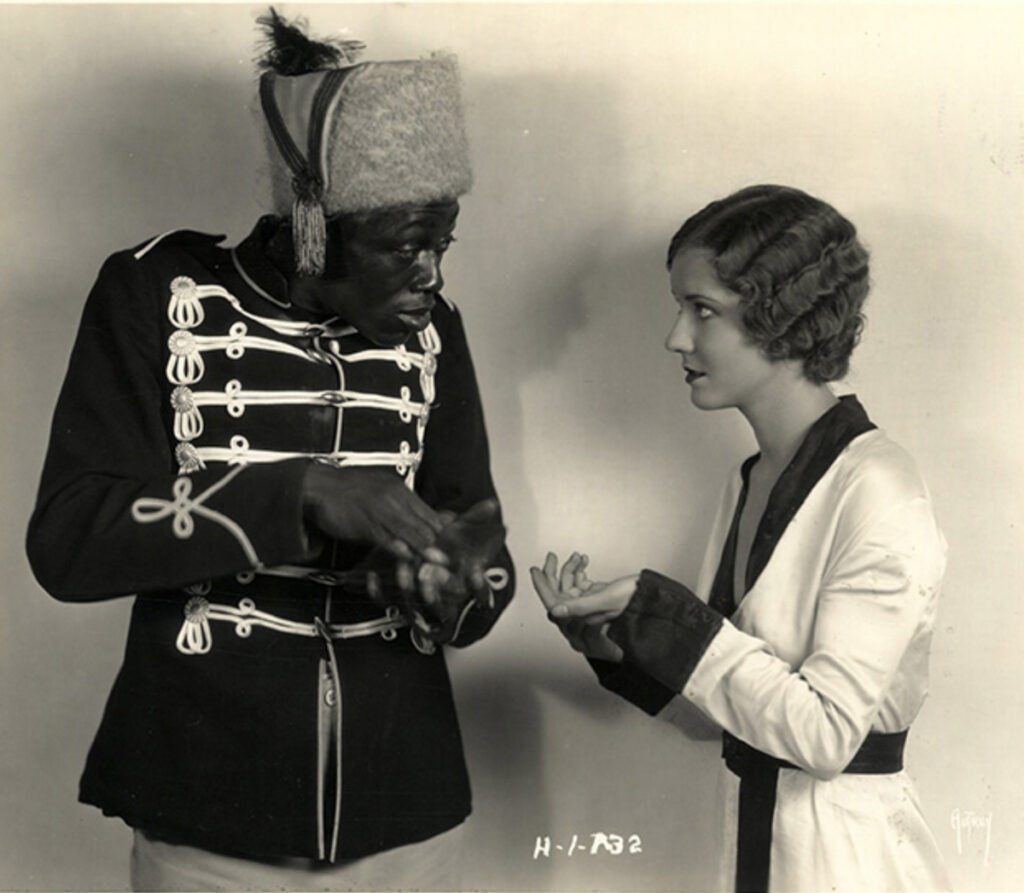
Very early talkie and one of the legendary Stepin Fetchit’s earliest movies (he only began to appear on screen in 1929)
In the 1929 version of Show Boat Perry created the role of Joe, although Jules Bledsoe provided Perry’s singing voice for “Ol’ Man River“, but he did sing “The Lonesome Road” in the film.
Hal Roach signed him to a film contract to appear in nine Our Gang episodes in 1930 and 1931. However, his only appearance in the series was in A Tough Winter. Perry’s contract was cancelled for unknown reasons after its release.
Perry was good friends with fellow comic actor Will Rogers. They appeared together in David Harum (1934), Judge Priest (1934), Steamboat ‘Round the Bend (1935), and The County Chairman (1935).
Stepin Fetchit Becomes A Millionaire
Stepin Fetchit (1935) Keybook Portrait
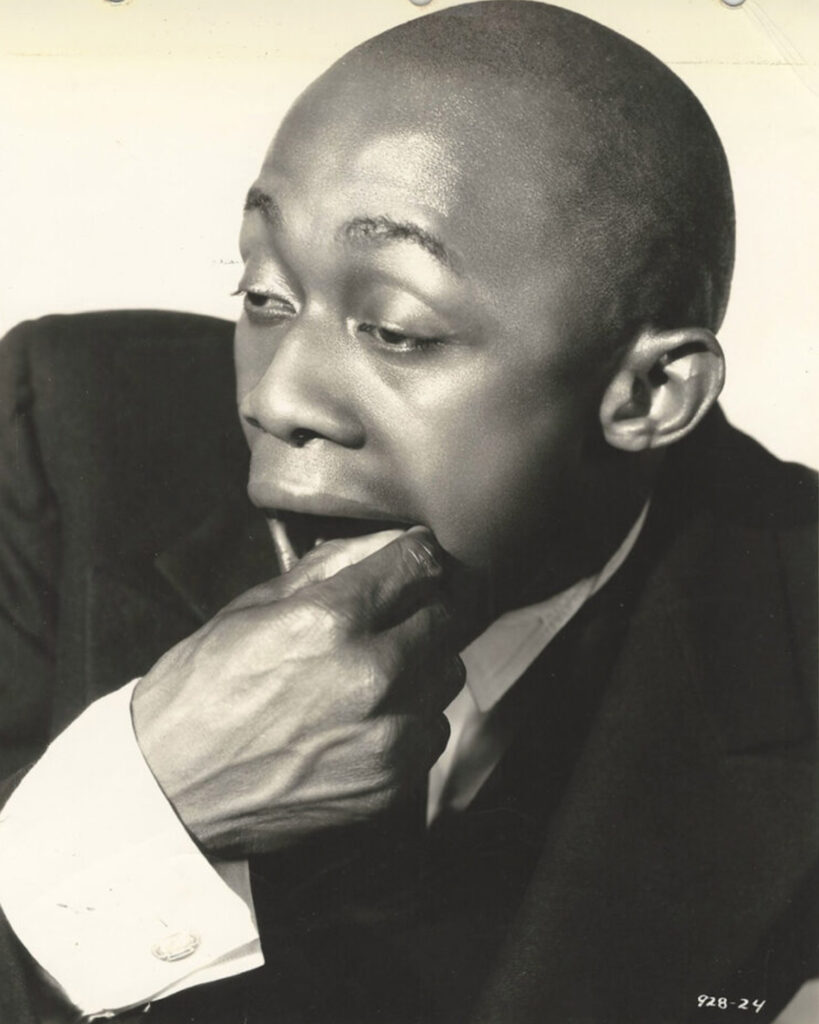
Stepin Fetchit appeared in top films starring Shirley Temple and Will Rogers.
By the mid-1930s, Perry was the first black actor to become a millionaire. He appeared in 44 films between 1927 and 1939. In 1940, Perry temporarily stopped appearing in films, having been frustrated by his unsuccessful attempt to get equal pay and billing with his white costars.
He returned in 1945, in part due to financial need, though he only appeared in eight films between 1945 and 1953. He declared bankruptcy in 1947 and returned to vaudeville.
Stepin Fetchit Portrait (1947) I Ain’t Gonna Open That Door
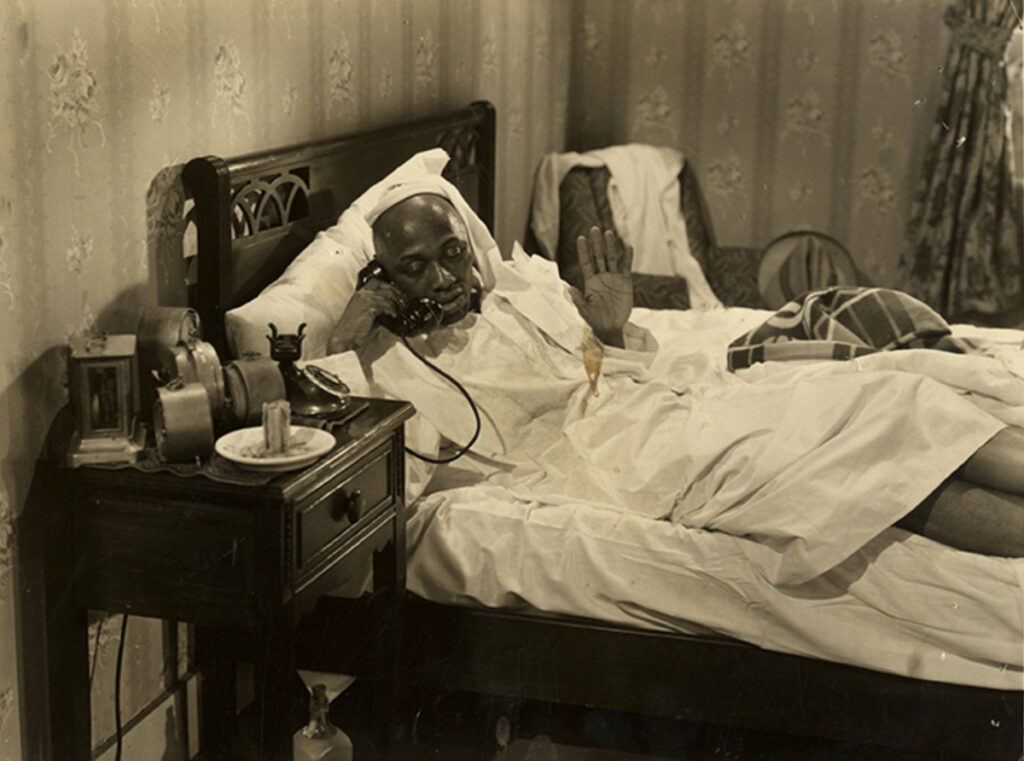
After Fetchit’s career in mainstream Hollywood movies fizzled, he started to find work in small Black cast films like this comedy short.
He became a friend of heavyweight boxing champion Muhammad Ali in the 1960s, allegedly converting to the Nation of Islam shortly before.
Stephen Fetchit & Cassius Clay (1965)
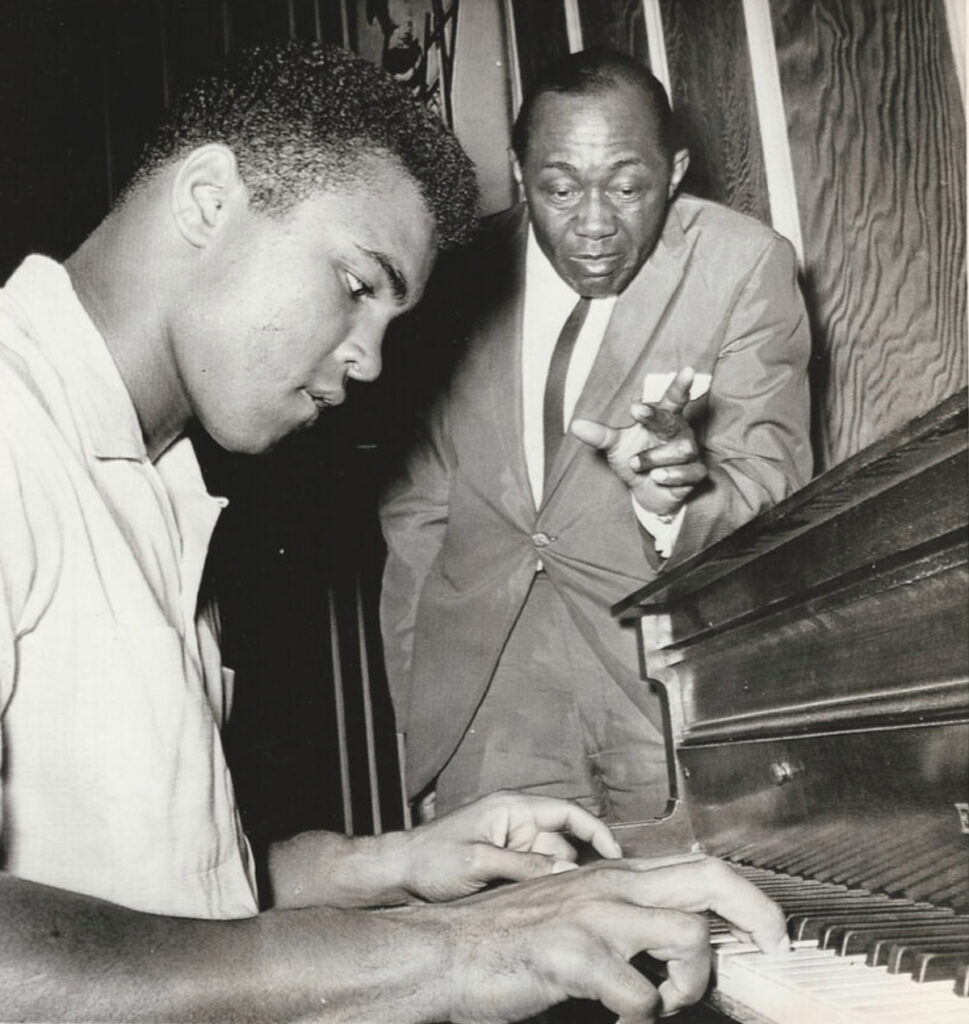
Unusual dual portrait of Cassius Clay (before he changed his name to Muhammad Ali) clowning around at the piano with Stepin Fetchit looking on. Clay and Fetchit became friends in the early 1960s. Fetchit was frequently present at Clay’s training camp and even participated in some of his press conferences
After 1953, Perry appeared in cameos in the made-for-television movie Cutter (1972) and the feature films Amazing Grace (1974) and Won Ton Ton, the Dog Who Saved Hollywood (1976).
Stepin Fetchit vs. CBS
He found himself in conflict during his career with civil rights leaders who criticized him personally for the film roles that he portrayed. In 1968, CBS aired the hour-long documentary Black History: Lost, Stolen, or Strayed, written by Andy Rooney (for which he received an Emmy Award) and narrated by Bill Cosby, which criticized the depiction of black people in American film, and especially singled out Stepin Fetchit for criticism. After the show aired, Perry unsuccessfully sued CBS and the documentary’s producers for defamation of character.
The Final Act
Perry suffered a stroke in 1976, ending his acting career; he then moved into the Motion Picture & Television Country House and Hospital. He died on November 19, 1985, from pneumonia and heart failure, at the age of 83.
Legacy
Perry spawned imitators, such as Willie Best (“Sleep ‘n Eat”) and Mantan Moreland, the scared, wide-eyed manservant of Charlie Chan. Perry had actually played a manservant in the Charlie Chan series before Moreland in 1935’s Charlie Chan in Egypt.
Stepin Fetchit (1935) Charlie Chan In Egypt
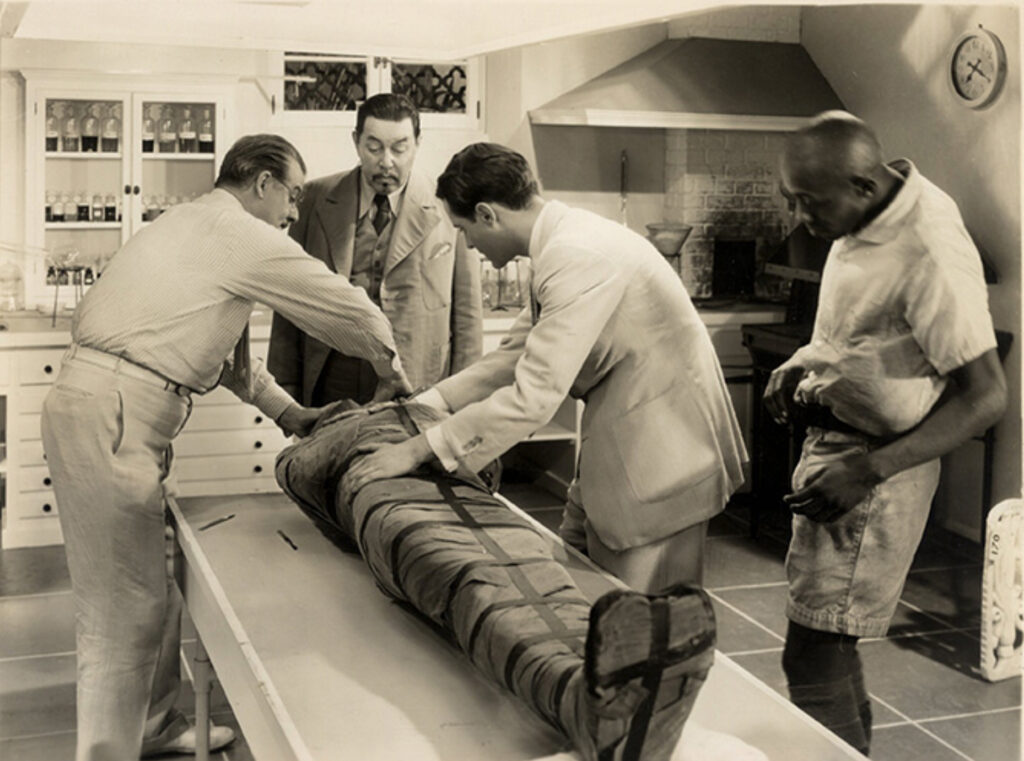
Stepin Fetchit as “Snowshoes”, a typical example of the demeaning racial stereotypes which he regularly portrayed on screen.
In the 2005 book Stepin Fetchit: The Life and Times of Lincoln Perry, African-American critic Mel Watkins argued that the character of Stepin Fetchit was not truly lazy or simple-minded, but instead a prankster who deliberately tricked his White employers so that they would do the work instead of him. This technique, which developed during American slavery, was referred to as “putting on old massa“, and it was a kind of con art with which Black audiences of the time would have been familiar.
Awards And Honors
Fetchit has a star on the Hollywood Walk of Fame.
In 1976, despite popular aversion to his character, the Hollywood chapter of the NAACP awarded Perry a special NAACP Image Award. Two years later, he was inducted into the Black Filmmakers Hall of Fame.
- African American Movie Memorabilia
- African Americana
- Black History
- Celebrating Women’s HistoryI Film
- Celebrity Photographs
- Current Exhibit
- Famous Female Vocalists
- Famous Hollywood Portrait Photographers
- Featured
- Film & Movie Star Photographs
- Film Noir
- Film Scripts
- Hollywood History
- Jazz Singers & Musicians
- LGBTQ Cultural History
- LGBTQ Theater History
- Lobby Cards
- Movie Memorabilia
- Movie Posters
- New York Book Fair
- Pressbooks
- Scene Stills
- Star Power
- Vintage Original Horror Film Photographs
- Vintage Original Movie Scripts & Books
- Vintage Original Publicity Photographs
- Vintage Original Studio Photographs
- WalterFilm
